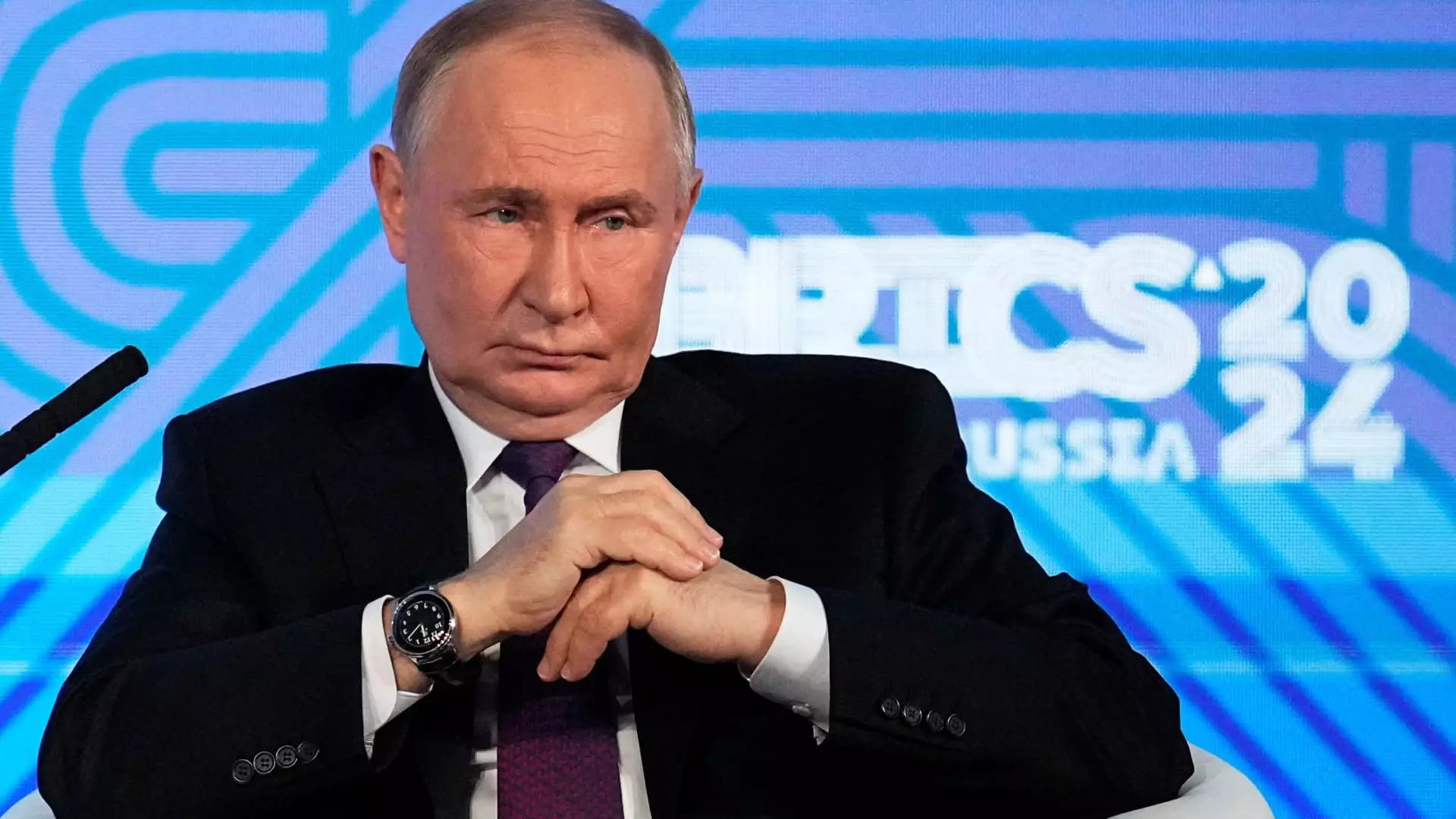In the ever-evolving landscape of international economics, the BRICS alliance—comprising Brazil, Russia, India, China, South Africa, and newly added members such as Egypt, Ethiopia, Iran, and the United Arab Emirates—has been touted as a formidable contender against the traditional powerhouses of the West. Russian President Vladimir Putin recently articulated that the collective efforts and economic growth of the BRICS nations are set to drive a significant portion of global economic expansion in the upcoming years, challenging the dominance historically enjoyed by Western countries.
Putin’s assertions underline the strategic intentions behind the BRICS coalition’s expansion, with the inclusion of several new nations aiming to create a more comprehensive and influential block. The upcoming BRICS summit in Kazan, scheduled for October 22-24, is being framed as a pivotal event that reflects the group’s resilience amid Western sanctions against Russia. The Kremlin’s objective is clear; they seek to establish BRICS as a counterweight to Western hegemony, promoting a multipolar world order where economic sovereignty is paramount.
The allure of BRICS lies not only in its size but also in its rapid economic growth that outpaces many developed nations. This growth is viewed as a beacon of hope for emerging economies, suggesting that collaboration within BRICS can lead to shared prosperity, ultimately driving significant contributions to global GDP.
A key theme emerging from Putin’s dialogue is the notion of economic sovereignty—highlighting the BRICS members’ desire to diminish their reliance on external influences and the often volatile constraints imposed by Western financial systems. Putin emphasized that the economic trajectory of BRICS nations would increasingly be defined by internal dynamics rather than dictated by foreign entities. This shift represents a significant transition, whereby member countries are urged to develop their independent financial infrastructures.
Discussions surrounding the establishment of an alternative to the SWIFT financial messaging system further demonstrate BRICS’s commitment to creating a self-contained network that can insulate its members from sanctions. Initiatives such as these reflect a broader strategy to enhance financial resilience and operational autonomy.
During the Kazan summit, the agenda will likely delve into plans for overhauling the prevailing global financial architecture. Putin has voiced aspirations for a collaborative system that would diversify currency use within BRICS, gradually reducing dependency on the U.S. dollar. By utilizing national currencies for cross-border trade and investments, BRICS aims to fortify its economic independence.
Moreover, the New Development Bank—a crucial entity within the BRICS framework—serves as an alternative financial institution, providing the means for investment in vital sectors such as technology and infrastructure across the Global South. This emphasis on development financing is not merely a response to Western financial dominance but a proactive initiative to uplift member countries and bolster their economic positions globally.
As Russia positions itself as a leader of BRICS initiatives, the call for increased investments in modern sectors such as e-commerce and artificial intelligence is noteworthy. The development of transport megaprojects, such as the Arctic Sea Route and the North-to-South corridor, are critical to enhancing connectivity between continents, facilitating trade, and improving logistical efficiency.
These ambitious projects underscore the strategic vision BRICS members share in envisioning economic interconnectivity as a pathway to greater influence and sustainability. The focus on infrastructural developments reflects a long-term commitment to fostering economic ties not only among member nations but also with countries aspiring to join the BRICS coalition.
The BRICS coalition emerges at a critical junction, poised to shape the future economic landscape. As members gather for the upcoming summit, the discussions will undoubtedly pivot around enhancing cooperative efforts, re-evaluating global financial structures, and solidifying economic sovereignty among its members. The evolving dynamics within BRICS might redefine global economic power relations, fostering a landscape where emerging economies coalesce to challenge long-standing conventions and pursue collective advancement. As South-South cooperation intensifies, the world may soon witness a recalibration of global economic dynamics long dominated by Western influences.

Leave a Reply